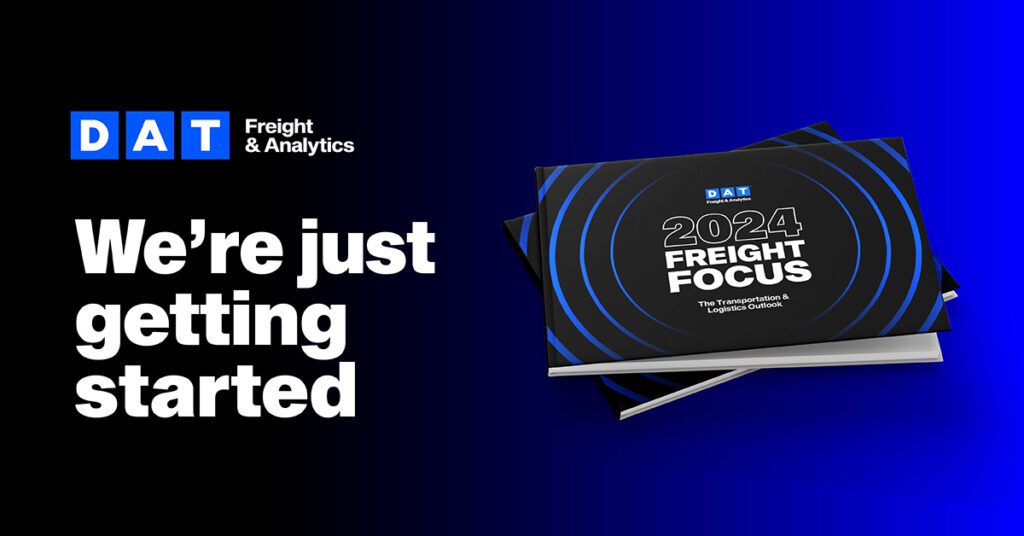
As we find ourselves in the final phase of a familiar cycle, shippers are currently enjoying a market that tilts in their favor, but the winds of change are on the horizon.
Click here to access “Freight Focus,” our annual report reviewing 2023 and looking ahead to 2024
The current landscape: A shippers’ market
Almost three years ago, carriers held the pricing power, driven by the disruptions of the pandemic. Record-high truckload rates attracted a surge of new carriers, leading to an oversupply of capacity. Now, we’re in an inverted market where spot rates sit well below contract rates, creating challenging conditions for transportation providers.
Challenges and struggles
While shippers have been benefiting from double-digit percentage rate decreases, transportation providers are grappling with labor strife within the industry, port issues, and a global surge in fraud. The latter has introduced new challenges, requiring increased vigilance against scams like double-brokering, phishing, identity theft, and other cybercrimes.
Squeeze on small carriers
New carriers that entered the market during the profitability peak of 2020 and 2021 are feeling the squeeze. What was once a lucrative venture has now turned into a struggle for profitability, with many carriers barely breaking even. As savings generated during the pandemic run out, the industry is witnessing a trend of carriers exiting, a trend expected to continue into 2024.
Brokers in a bind
While brokers may not feel the pain as acutely as small carriers, declining demand and slim margins have led to a decrease in new brokers entering the market. Most enterprise brokerages anticipate net revenue margin declines in 2023 compared to the previous year.
Looking ahead to 2024
The truckload market cycle is bottoming out, with carriers continuing to exit the industry. Absent significant changes in demand before Q2 of 2024, the current state of the market is likely to persist. However, unforeseen events, such as rising geopolitical risks, could shake up the status quo. If these events occur, they might drive more carriers out of the industry, finally tilting supply and demand back in favor of those who remain.
Prediction
Expect the current market conditions to prevail until late Q2, when the market should find equilibrium. Spot rates are likely to rise over contract rates in the first half of the year, and demand will normalize as supply chain disruptions originating from the pandemic work their way out of the system. Navigating the truckload freight market in 2024 will require adaptability, vigilance, and a keen eye on geopolitical events that could reshape the industry landscape.


